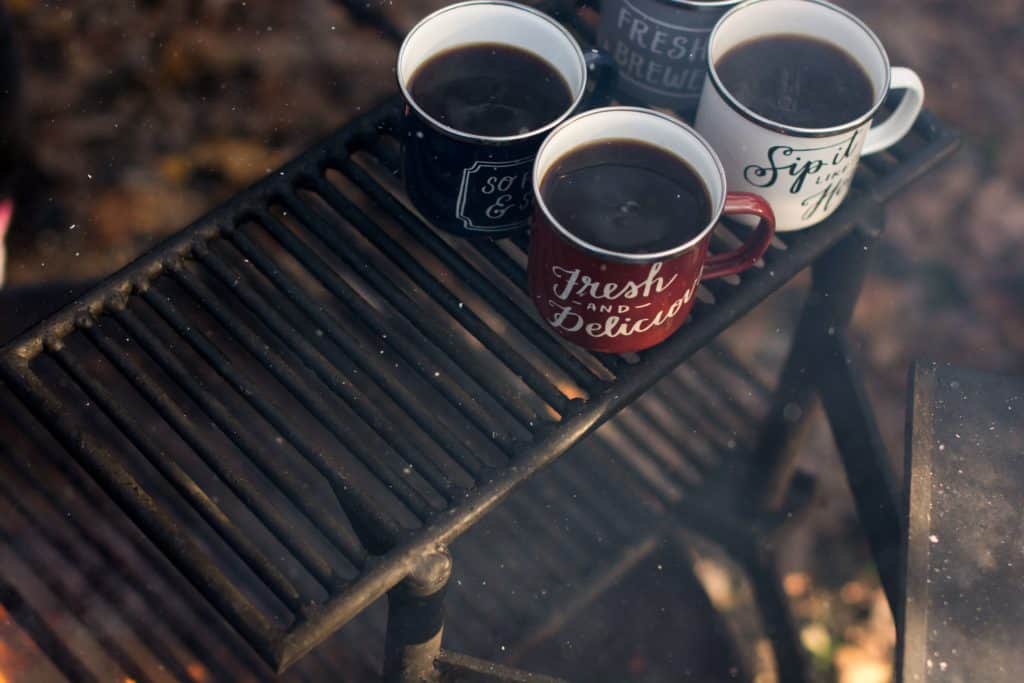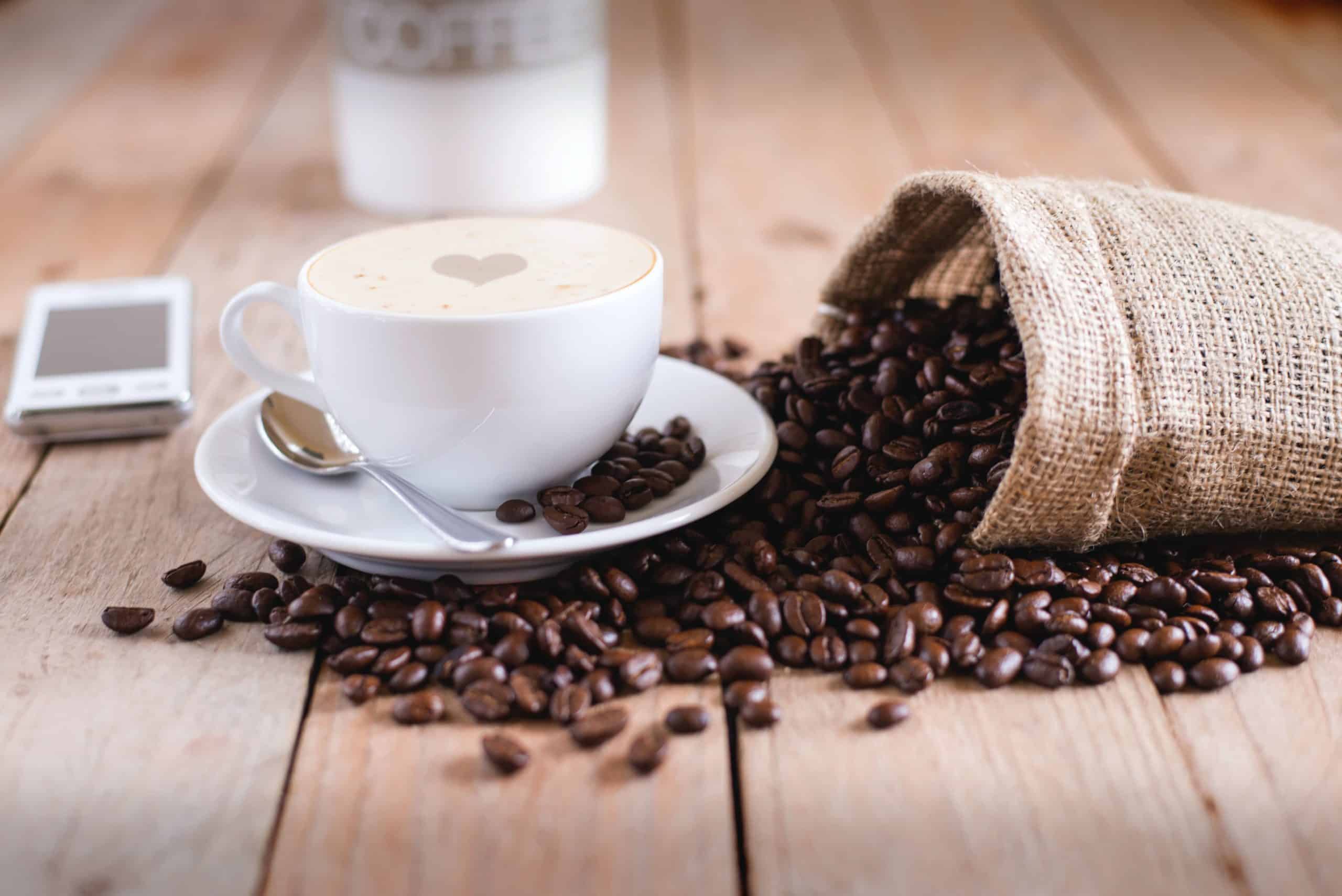Proper coffee does go out of date, just like any other food or drink product that is composed of natural ingredients.
Whether whole-bean or pre-ground, our coffee has a finite shelf life, and there’s nothing we can do about that.
Unlike us humans, coffee beans don’t cope well with oxygen, moisture or light. In fact, exposure to the atmosphere is what spoils coffee – hence why so many brands go to the trouble of vacuum-packing their produce.
That being said, it’s not as clear-cut as simply heeding the expiration date on the packaging. There are ways to increase the longevity of your coffee – and there are innocent mistakes that can accelerate the ageing process.
We’ll cover all of that right here. So, first things first.
How will I know that my coffee has gone bad?
The two main ways to tell when your coffee is past its best:
-
It smells dull, stale or damp.
-
Once brewed, it tastes unusually bitter or has a funky aftertaste – or it doesn’t taste of much at all.
In that respect, coffee is just like any other consumable product, from meat and bread to vegetables and fruit: if it smells or tastes off, it probably is.
Coffee is a very fragrant product, and much of the coffee experience is about the smell, so you should trust your nose completely. It’s not just downright unpleasant smells that you should be looking out for, either: a general lack of coffee aroma is just as much of a red flag.
Have you ever made a batch of coffee from a bag or canister that has been open for a week or so more, and noticed a bitter or generally dull taste? That’s because it has lost its freshness, and has ‘gone bad’ in that sense.
How long does coffee last for once opened?
This varies massively from brand to brand, roast to roast and even batch to batch, not to mention subject to your personal taste, but here’s a general rule of thumb: one week.
Unless the coffee you’re using is downright poor in quality to begin with, you shouldn’t notice much deterioration in quality within the first seven days. On that seventh morning, the delightful coffee smell should still hit you when you open the container, and the beans themselves should still look like they did on the first day – in colour and in oiliness (or lack thereof).
The darker and bolder the roast, the more quickly you’ll notice a change in taste – specifically a bitterness. Blonde roasts, on the other hand, should keep for a little longer, because they haven’t undergone such a rigorous roasting process and therefore aren’t as ‘thirsty’ for moisture as darker roasts (more about thirstiness and the ‘hygroscopic’ nature of coffee later).
Is old coffee dangerous to drink?
Generally speaking, no.
You won’t become ill from using stale coffee beans or stale pre-ground coffee – the results just won’t be very nice. The smell and the taste may be lacklustre or even outright unpleasant, but not dangerous per se.
To use a non-coffee analogy, it’s a bit like using ground cinnamon or some other ground spice that has been in the cupboard for years: it won’t be as fragrant or as flavoursome as it was when you first opened it and used it, but it will still get the job done in a basic sense.
Of course, there’s coffee that’s been open for too long, and then there’s coffee that has genuinely spoiled. If you notice a damp or mildew-like smell when you come to prepare a brew, or you see anything resembling mold on the coffee itself, you should bin it – because this would most likely mean that the coffee has been exposed to oxygen and humidity for a prolonged period of time.
It’s also worth mentioning that you should not drink coffee that has been brewed and sat stewing for more than a day or so, especially if you have already added milk. Brewed coffee deteriorates very rapidly in both smell and taste – as many of us know from experience!

How much attention should I pay to the best-before date?
Best-before dates are worth paying attention to, but you should treat them as guides more than rigid rules. The coffee doesn’t spoil when the clock chimes midnight on the expiration date.
Most good coffee is sold in high-quality packaging that is airtight and vacuum-packed, in either a sturdy bag or some other type of container such as an opaque screw-top canister.
So if you leave it unopened and you store it in a dark and dry place, the coffee inside may well keep for much longer than is stated on its best-before or use-by date. It’s only when you break the original seal (and thereby expose the coffee to oxygen, moisture and light) that the clock really starts ticking.
Does pre-ground coffee go bad more quickly than whole-bean coffee?
Yes, most definitely.
Roasted coffee beans are hygroscopic by nature, which means that they seek out water molecules from the air. When raw coffee beans (which are green) undergo the roasting process and then the subsequent drying-out process, almost all of the water within them is extracted – especially in darker roasts.
As a result of this change, the beans seek to reabsorb moisture at every opportunity – i.e. whenever they are exposed to the air (the thirstiness we mentioned earlier). Ground coffee beans, therefore, are weaker in structure than their whole-bean equivalents, and can absorb more moisture, meaning that they saturate (and therefore deteriorate) more quickly.
Does refrigerating or freezing coffee help to preserve its freshness?
No. In fact, storing your coffee in the fridge or the freezer can strip away a great deal of its flavour and accelerate the ageing process.
For instance, a lot of people keep their coffee, once opened, in a jar within their fridge or freezer. Each time they take that cold jar out and unscrew the lid, they are encouraging moisture from the air to cling to both the jar and its contents – just like when you take a can of pop out of the fridge and it immediately becomes slick with condensation.
Again, whether whole-bean or pre-ground, the negative effect is still the same.
How can I store my coffee for maximum freshness?
As we have already established, the main enemies of coffee freshness are as follows:
- Oxygen
- Moisture
- Heat
Keep your coffee protected from those, and you’ll find that it stays fresh-smelling and tasty for at least a week.
Here’s how to get the best storage results for maximum freshness:
1. Stick to buying whole-bean where possible
As we’ve outlined, ground coffee ages faster, so avoid buying it pre-ground. Plus, the fact that it’s already ground means that it has been exposed to the atmosphere during the grinding process, and who’s to say how long it sat ground before final packaging?
2.Grind as you go
It may be more convenient to open a new bag/canister of coffee and grind it all at once, but it results in a poorer-quality brew after a few days. Depending on your chosen brand(s) and roast(s), you will just need to do a bit of experimenting here; maybe start off by grinding three days’ worth of beans at a time, and see how you get on.
3. Invest in a decent coffee container
Recycling old jam jars and other such receptacles seems like a clever thing to do, but they’re no good for preserving sensitive products like coffee. You need a vacuum-sealed container.
Thankfully, you have plenty of options to choose from across the web and in dedicated homeware stores. (If, for whatever reason, you don’t want to buy a specialist container, just make sure you keep your coffee in a dry and dark place, such as a kitchen cupboard – ideally one that is well away from the cooker, the kettle and the sink.)

